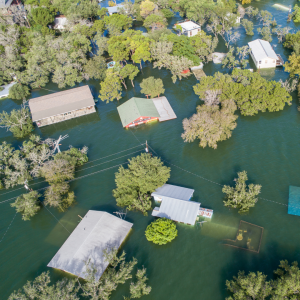
Science-Policy Workshop reveals insights for scaling up Nature-based Solutions (NbS) to address water challenges at landscape level
City representatives, environmental scientists and policymakers gathered at IHS, Institute for Housing and Urban Development Studies, Erasmus University in Rotterdam to discuss one of Europe’s most pressing challenges: how to harness nature’s power to build water-resilient communities at scale in line with the objectives of the EU Mission on Climate Adaptation.
The picturesque Dutch city of Rotterdam, already a global leader in climate adaptation, became the centre of an important workshop on the 27 June 2025 at the margins of the 12th European Urban Resilience Forum. The NetworkNature Science-Policy Workshop brought together urban planners, researchers and policy architects to tackle a deceptively simple question: How can we mainstream NbS in climate adaptation planning to address water challenges that must be tackled at the landscape/river basin scale beyond administrative and sectoral boundaries?
The cross-border challenge
Fragmented governance that does not align with the need to adopt a catchment or landscape scale governance approach needed for shared resources, is one of the key water related challenges at the landscape scale. Water related ecosystems do not follow administrative or sectoral boundaries, hence the need for a landscape perspective, yet our policy frameworks often remain frustratingly siloed. The Science-Policy dialogue, organized by the Institute for European Environmental Policy (IEEP) and the UN Environment Programme World Conservation Monitoring Centre (UNEP-WCMC), built on insights from an online workshop held in May 2025, where experts identified five critical policy themes shaping European water resilience.
Three innovative approaches
The workshop showcased three Horizon Europe projects reshaping how Europe thinks about water resilience:
- The MERLIN Project is driving institutional transformation across economic sectors (mainly the hydropower sector) to mainstream NbS across Europe’s freshwater environments. Their key insight? Barrier removal of small and large transversal barriers with no economic function and not suitable for retrofitting small hydropower in future, may not involve an NbS approach but can lead to more ambitious action that does involve NbS approach.
- The ARCADIA Project, a framework for regional resilience that integrates NbS within the overarching Regional Resilient Journey (RRJ) approach, is a comprehensive regional resilience framework with a collaborative Arcadia scorecard assessment tool that helps stakeholders evaluate progress, identify gaps and plan next steps in their resilience journey. The presentation highlighted the role of consistent monitoring and evaluation in guiding regions through transformative change toward climate adaptation.
- Rotterdam’s climate resilience story focuses on building climate resilient cities as part of the landscape through a case study that shows the application of The Vital Systems Approach. The case provided a masterclass in systems thinking, demonstrating how cities can build resilience as integral parts of larger landscape-scale strategies.
Interactive breakthroughs
The workshop’s most innovative element came through three interactive breakout sessions:
Serious Game: Participants engaged in a serious game featuring the fictional city of ‘Verdancia’, using ARCADIA’s scorecard to explore how regional transformation toward climate resilience might unfold in practice. The exercise revealed practical policy implications that will inform an upcoming policy brief, proving that sometimes the best way to understand complex systems is to play with them
Strengths-Weaknesses-Opportunities-Threats (SWOT) analysis of policy recommendations: A SWOT analysis examined the critical role of funding streams and harmful subsidies that impact the implementation of NbS for water resilience. The conclusion was clear: successfully scaling NbS requires a coordinated mix of public and private finance, clear policy signals and strategic investment in capacity building. Perhaps most importantly, harmful subsidies must be critically examined to redirect funding toward nature-positive outcomes.
Mapping the policy maze: Mind-mapping sessions revealed that integrating NbS across policy and governance levels requires addressing power imbalances, the persistence of the prioritization of financial returns over social equity, and conflicts over land and water use.
One of the session’s most significant insights was that integrating NbS into climate adaptation policy demands more than technical solutions. It requires addressing deep-rooted power imbalances and ensuring that social justice considerations are meaningfully integrated in NbS to ensure a balance between social and economic interests.
What’s next?
The Science-Policy Workshop provided insights that will inform an upcoming policy brief that seeks to influence EU climate adaptation policies and strategies that can address water challenges at the landscape scale.
Strong public sector leadership emerged as essential for building enabling policy and regulatory environments and coordinating strategic funding partnerships. The EU’s role in supporting regional action through initiatives like the Water Resilience Strategy will be crucial for translating these insights into real-world impact.
As climate impacts intensify across Europe, the message is clear: the future of water resilience lies in thinking beyond traditional boundaries. NbS offer a pathway forward, but only if we can master scaling them up across landscapes, including policy, governance, and economic sectors.
